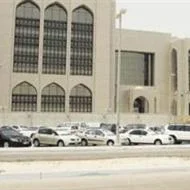His Highness Sheikh Mohammed bin Rashid Al Maktoum, Vice-President and Prime Minister of the UAE and Ruler of Dubai, has issued Law No (7) of 2011, which includes amendments to a number of articles in Law No (9) of 2004 ('Original Law') that established the Dubai International Financial Centre (DIFC) as the first Financial Free Zone in the UAE.
Over the past seven years, DIFC has become the financial and business gateway between regional emerging markets and the international markets.
The amendments to the law provide greater legal clarity and transparency, and provide stronger support to DIFC's drive to become a global financial centre, complying with the highest levels of good governance and best practices.
Law No (7) of 2011, which incorporates the first ever amendments made to the Original Law, was enacted on the 4th of April, and published on Thursday, April 21, 2011, in the Official Gazette in both Arabic and English. It is in force with immediate effect. The new law comes as part of the Government of Dubai's ongoing strategic commitment to diversify the emirate's economy by supporting the growth of the banking and financial services sector through DIFC. The new law results from a consultative and collaborative process between the three DIFC bodies - the DIFC Authority (DIFCA), the Dubai Financial Services Authority (DFSA), and the DIFC Courts - and various Dubai government bodies, including the Legal Affairs Department of the Government of Dubai.
Following the Dubai Government's review of governance structures, the new law provides for the creation of a Higher Board comprising representatives of the three DIFC bodies. This Higher Board will be presided over by the DIFC President, Sheikh Maktoum bin Mohammed bin Rashid Al Maktoum, Deputy Ruler of Dubai, and will be invited to meet at least twice a year. The DIFC Higher Board will ensure that the three DIFC bodies operate in harmony and unity of purpose by strengthening the levels of coordination without affecting their independence.
Ahmed Humaid Al Tayer, Governor of DIFC said: "The amendments to Law (9) provide greater legal clarity and improve the corporate governance of DIFC. These changes further strengthen DIFC's legal and financial infrastructure as a whole, and reinforce the Government's commitment to the independence of each of the Centre's bodies. This is an important step forward in the growth of DIFC as a global financial hub and complements the Centre's continuous efforts to develop its services and increase its contribution to the UAE's economy." The new law includes a new article that defines the manner of appointment and the role of the Governor of DIFC. The Governor is appointed by the Ruler of Dubai upon the proposal of the DIFC President for a four year term that may be renewed.
The new law also clarifies the application of all Dubai laws to DIFC including governmental, financial and legal arrangements. This clarification creates many opportunities for future collaboration between DIFC and other government bodies, fostering cooperation and open dialogue thus enhancing the growth of banking and financial services, ancillary services and commercial and financial activities and strengthens its role in the region.
DIFCA-related amendments: Changes to the Original Law include a number of provisions that are specific to DIFCA. These confirm DIFCA's independence and put into place a corporate structure of a Board, CEO and executive body. The precise duties and powers of the Board and the executive have been defined, where the Board will be responsible to the DIFC President for the functions of DIFCA.
The new law also provides specific provisions clarifying that DIFCA is now responsible for establishing, regulating and developing the Centre's payment systems. DIFCA will coordinate with the Central Bank of the UAE in regulating, supervising, operating and using wholesale, large-value payment systems, including a multi-country, multi-currency Real Time Gross Settlement System, allowing the clearing and settlement of payments in foreign currencies in the DIFC.
David Eldon, Chairman of DIFCA said; "The new law will assist DIFC's continuous evolution and underlines its position as one of the world's top international financial centres. By emphasising the Centre's independence, the new law assures companies looking to establish a presence in the region that DIFC offers both a modern infrastructure and a world-class business environment." DFSA-related amendments: A DFSA-related article in the new law clarifies the roles and powers of the DFSA's Board and CEO, reinforcing the autonomy and authority of the DFSA's board.
The Chairman of the DFSA Board of Directors, Abdullah M Saleh, commented; "DFSA welcomes the new law as a further positive step in the development of the Centre. DFSA will continue its commitment to protect the integrity of DIFC and to realise the vision its Sheikh Maktoum. " DIFC Courts-related amendments: The amendments made to DIFC Courts-related provisions further reinforce the Government of Dubai's commitment to the independence of DIFC Courts, by guaranteeing its funding and authorising the Chief Justice to determine the Courts' rules, procedures, staffing and operation.
Michael Hwang, Chief Justice of DIFC Courts, said; "The revisions to the law further reinforce the autonomy and independence of DIFC Courts. A fair, efficient and transparent judicial system operating independently is a critical component of DIFC's offering as a world-class financial centre. We remain committed to uphold the laws of DIFC to the highest international standards, and the new law supports this commitment."



